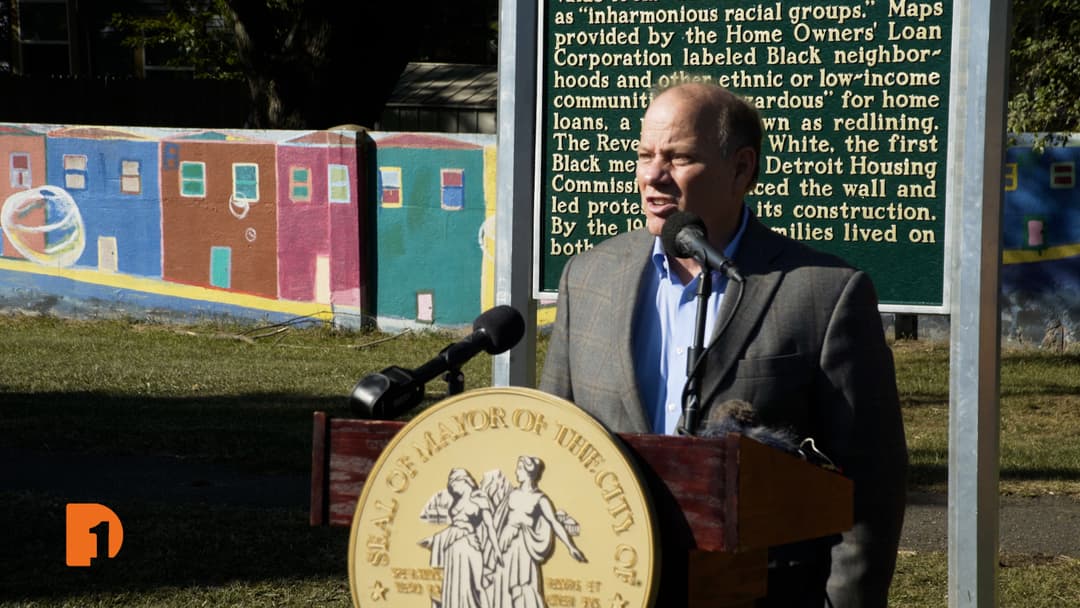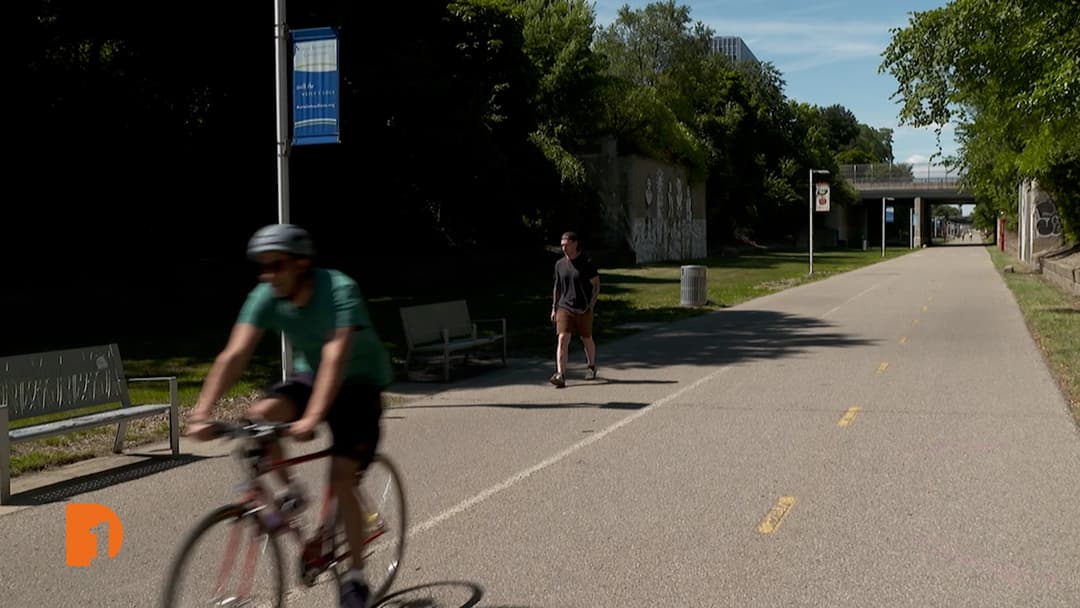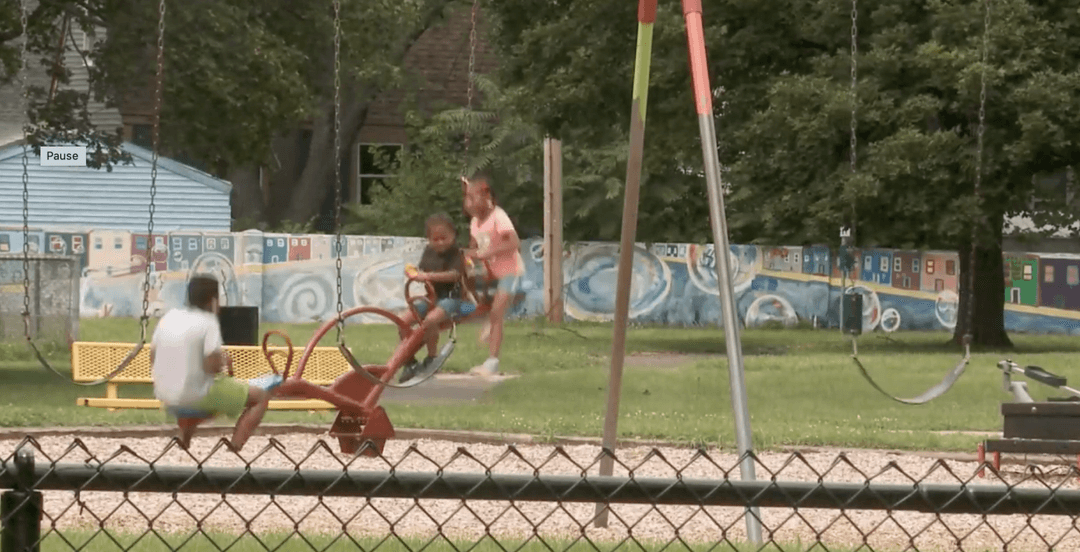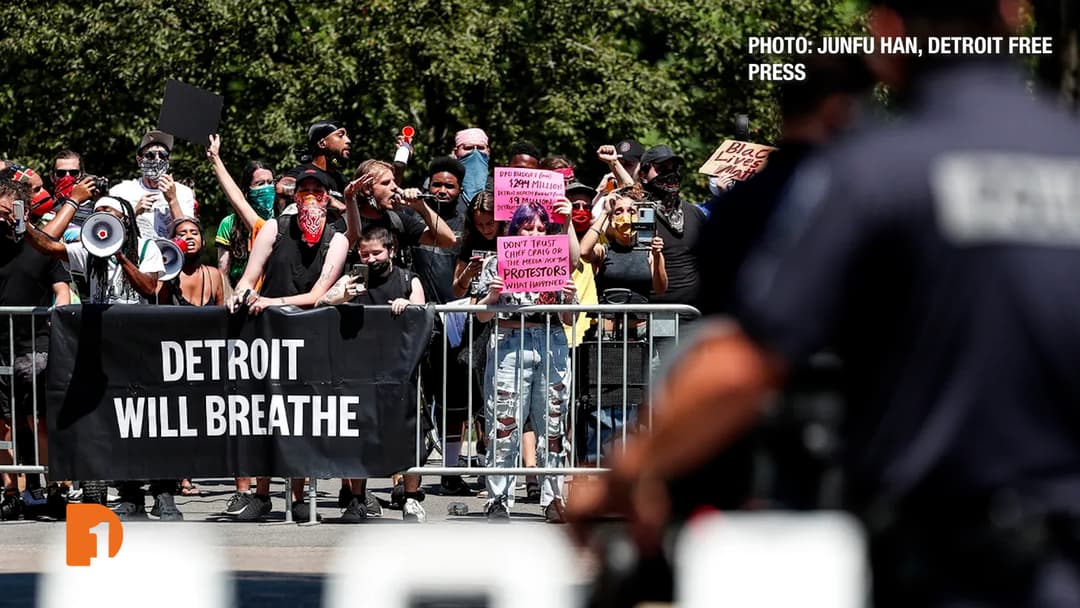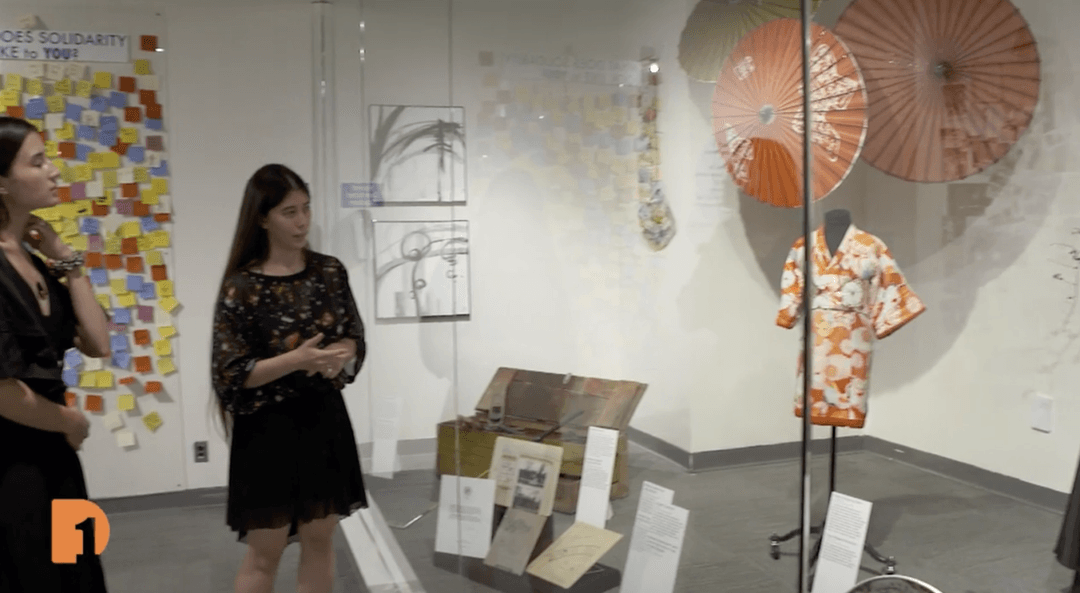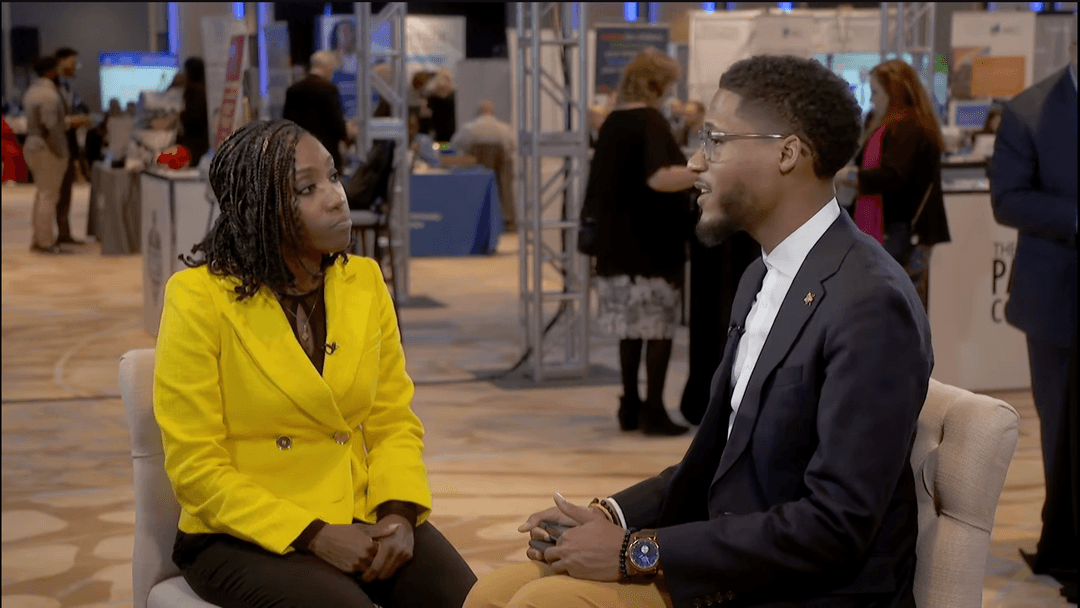The Highway Toll on People of Color
Jan 20, 2022
Originally posted on October 1, 2020
Are Detroit’s highways relics of structural racism from the past? As the country sees a new wave of conversations around racial equality enter the mainstream headlines, One Detroit Associate Producer Will Glover talks with freelance writer Nithin Vejendla, whose article sparked the story, Wayne State law professor and Director of the Damon J. Keith Center for Civil Rights Peter Hammer, Detroit historian with Black Scroll Network Jamon Jordan, and University of Detroit Mercy School of Architecture Dean and Detroit Collaborative Design Center Dan Pitera to examine Detroit’s historic highways, and what residents and the city can do to reckon with the past.
Watch Now:
[et_pb_video src=”https://www.youtube.com/watch?v=L3TtumZqJAs” _builder_version=”4.14.5″ _module_preset=”default” global_colors_info=”{}”]
Full transcript:
Peter Hammer: You could look at any other part of the country and you would say you can’t have a strong region without a strong city. I would say racism here was so deep that they were willing to kill the city in spite of themselves.
Will Glover: Starting In the late 1950’s, construction on the I-75 & I-375 highways, cut through some of Detroit’s most prosperous black neighborhoods of Black Bottom and Paradise Valley, which rivaled New York’s Harlem, and Tulsa, Oklahoma’s “Black Wall St”. Thousands were displaced, erasing generations of wealth. Some call these highways Detroit’s largest monument to racism. This is Detroit Historian Jamon Jordan.
Jamon Jordan: Historically, the building of these freeways affected the whole country. They didn’t just affect Detroit. But largely, one of the major areas they affected almost everywhere they went was African American communities.
Will Glover: But could there be a way to rebuild the wealth and opportunity for the next generation of Black Detroiters? I spoke with freelance writer Nithin Vejendla whose recent article on Detroit highways being racist appeared in the Detroit Free Press.
So how just just basically start with how a freeway could possibly be a symbol of racism.,
Nithin Vejendla: So you look at the construction of freeways and they were they were rather primarily through black neighborhoods because at that time. And so even now, black communities have less power, less political power to be able to resist these kind of disruptive changes. And because of racist redlining policy, land and houses and homes in black neighborhoods were worth far less than homes in white neighborhoods.
Will Glover: Detroit wasn’t the only city being dissected by highways, in fact, the man who set the national trend for city planning started in New York city. His name was Robert Moses.
In a 1974 biography, it was said Moses suggested suburbs make the water in their community pools colder to keep Black people from swimming with whites.
Closer to home, it was Detroit Mayor Albert Cobo who put together the plans to build the freeways that, in 1956, would decimate Black Bottom and Paradise Valley.
Jamon Jordan: There are arguments about ‘did he do it because he’s a racist and destroyed what was left of a Black community’? Or did he do it because it was the most feasible place to put a freeway’? Arguments go both ways. Well, looking at the history of Cobo, his acts, his policies, and his ideas about the African American community, it’s pretty clear that this was not a coincidence.
Will Glover: This is Wayne State University Law professor and Director of the Damon J. Keith Center for Civil Rights, Peter Hammer.
Peter Hammer: Think about structural racism and think about how structural racism is defined at the key center, we’re looking at the inter-institutional dynamics that produce and reproduce racially disparate outcomes over time. When the freeways were started or we thought this white people particularly thought this is development and it was also thought of necessary for part of a national plan of interstate networks and also for the creation and cohesion of the suburbs. You have to sort of imagine that that’s the city of underwriting its own demise. Right. So the expressways were thought, well, these are easy ways for Detroiters to go out to the suburbs and come back. They’re also easy ways for Detroiters out in the suburbs and never come back.
What was I-75 before it was I-75,right? And it was Hastings Street, and Hastings Street ran up and down Paradise Valley, which was the most important and most concentrated African-American business district in living district anywhere in the city. So, Tulsa has got a lot of of of attention lately for very legitimate reasons. And they called that Black Wall Street, and that was destroyed by race riot. Detroit’s Black Wall Street was destroyed by, quote unquote, development and the construction of the expressways and the destruction of Paradise Valley and people who run up and down I-75 today have no clue.
Will Glover: The question now: can Detroit reverse the process? That is, remove freeways. Cities like Milwaukee and San Francisco already have.
Nithin Vejendla: You look at San Francisco. San Francisco’s Embarcadero Freeway was heavily damaged in the earthquake in 1970. Instead of repairing it, they simply just removed that. And when they did that, traffic didn’t significantly increase. It didn’t cause massive, massive traffic jams and it significantly improved quality of life for a lot of people.
Will Glover: I spoke with civic engagement expert and Dean of the School of Architecture at the University of Detroit Mercy, Dan Pitera.
What is the economic impact, you know, to the to the extent that you can speak on it of undertaking such a project.
Dan Pitera: Think about what a scale of a project like this would do. And think about the the numbers, the thousands of jobs that could truly be generated across the decade of time from planning, engineering, surveying. It really is a we’re talking we’re talking thousands upon thousands of jobs that are possible. Which then means that we have to then not just plan for the jobs, but plan for the preparing and working with people to be ready for those jobs.
Will Glove: The Michigan Department of Transportation was to soon start the removal of 1-375 in downtown Detroit but the project was delayed because of the pandemic.
Do you think that removing the highways is an opportunity to address some of these? You know, historically, you know, systemically racist issues?
Peter Hammer: No, I don’t think you could make any credible connection to removing highways in today and undoing the harm that was done.
Jamon Jordan: The filling of I-375, it’s not harming the African American community, but it won’t bring Black Bottom back.
Will Glover: Many believe that undoing the damage to Black American Communities in cities like Detroit means investing in Black neighborhoods at the same scale and with the same resolve white suburbs received during urban renewal.
Peter Hammer: It’s just a matter of who has the power. Which means that at the end of the day, if you’re not changing the belief system. Right, the sort of highly racialized belief system that have created this history, then you have no chance of digging yourself out of the hole. So, a lot of effort has to be of really intentionally reshaping the white mind in a way that can transcend the sort of white supremacist heritage that we have received.
Will Glover: Regarding that stretch of freeway connecting the Chrysler Freeway to the downtown riverfront, I-375, what some can’t help but see as a major symbol of racism will remain for a few more years.
Maybe then the many millions of dollars needed will return to state coffers, allowing for it to be filled in and receive a proper burial.
Subscribe to One Detroit’s YouTube Channel & Don’t miss One Detroit Mondays and Thursdays at 7:30 p.m. on Detroit PBS, WTVS-Channel 56.
Catch the daily conversations on our website, Facebook, Twitter @DPTVOneDetroit, and Instagram @One.Detroit
View Past Episodes >
Watch One Detroit every Monday and Thursday at 7:30 p.m. ET on Detroit Public TV on Detroit Public TV, WTVS-Channel 56.
Stay Connected
Subscribe to One Detroit’s YouTube Channel.
Catch the daily conversations on our website, Facebook, Twitter, and Instagram @detroitperforms
Related Posts
Leave a Reply
Your email address will not be published. Required fields are marked*


